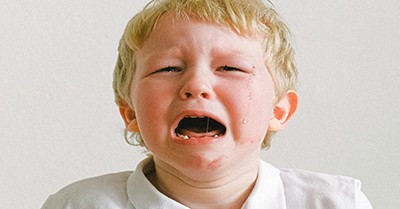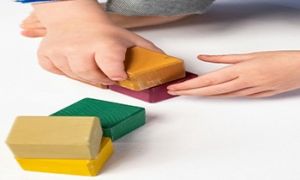Over the past decade, many educators have observed a troubling trend: biting, pushing, and other aggressive behaviours among toddlers are increasingly normalized as developmental inevitabilities. While it’s true that young children often lack the verbal tools to express frustration or overwhelm, the sector’s growing tolerance for these behaviours—without deeper investigation or family collaboration—raises serious concerns about safety, equity, and emotional wellbeing.
In many centres, it’s educators who shoulder the burden of managing these behaviours. Shadowing children who bite or push becomes a daily routine, often at the expense of broader engagement and curriculum delivery. The emotional toll is real—and compounded by a reluctance to speak candidly with families, for fear of backlash or enrolment loss.
But educators are not babysitters. We are professionals entrusted with the wellbeing of all children in our care. When one child’s behaviour consistently endangers others, we must be empowered to act—not just react.
Rather than framing biting or pushing as “normal,” educators can:
- Use emotionally intelligent language to validate the child’s experience and the impact on others.
- Initiate collaborative conversations with families, grounded in developmental insight and shared goals.
- Document patterns and triggers using ABC charts or behaviour logs to inform discussions.
- Frame safety as a collective responsibility, not a personal critique.
As one educator shared in a recent forum, “Dig deeper and investigate, get curious and document so you can make informed decisions that best meet the needs of the individual child and the group at large”.
Strategies That Support All Children
Drawing from sector best practice and educator insights, here are some effective approaches:
| Strategy | Description |
|---|---|
| Small Group Play | Reduces overstimulation and allows for closer supervision. |
| Emotion Coaching | Narrate feelings and model regulation: “I see you’re frustrated. Let’s find a safe way to show that.” |
| Visual Supports | Use social stories, cue cards, and calm corner visuals to scaffold self-regulation. |
| Sensory Tools | Provide oral-motor outlets (e.g., chewable necklaces, cold cloths) for children who bite. |
| Parent Partnerships | Share strategies that work at home and co-create consistent approaches. |
| Professional Support | Refer for assessments when behaviours persist beyond developmental norms. |
Educators across Australia are echoing your concerns. Some report being hit with chairs, others describe biting “epidemics” that required room restructuring. Many feel unsupported by management or dismissed by families. Yet others advocate for trauma-informed, partnership-based approaches that honour both the child’s needs and the group’s safety.
As one educator wisely noted, “EYLF reminds us: partnerships with families. Both educators and families need to work together to identify triggers and find workable strategies”.
Further Reading
Strategies To Prevent Biting In Toddlers
Toddlers and Biting
Biting Child
How To Respond To Toddlers Biting
Biting Observation







 As an Educator in Australia, your pay rate falls under the Children’s Services Award 2010. This award states the minimum amount that an employer can
As an Educator in Australia, your pay rate falls under the Children’s Services Award 2010. This award states the minimum amount that an employer can When working as a qualified Early Childhood Teacher (with a university degree) within a service, your rate of pay will come from the Educational Services
When working as a qualified Early Childhood Teacher (with a university degree) within a service, your rate of pay will come from the Educational Services When working as a Diploma Qualified Educator your pay rate is from the Children's Services Award 2010. This Award states your minimum rate of pay
When working as a Diploma Qualified Educator your pay rate is from the Children's Services Award 2010. This Award states your minimum rate of pay When working as a Cert 3 Qualified Educator, your pay rate is from the Children's Services Award 2010. This Award states your minimum rate of
When working as a Cert 3 Qualified Educator, your pay rate is from the Children's Services Award 2010. This Award states your minimum rate of Educational Leaders play a crucial role in their early childhood service by ensuring that the educational program aligns with best practices and supports the holistic
Educational Leaders play a crucial role in their early childhood service by ensuring that the educational program aligns with best practices and supports the holistic In early childhood education and care, ratios are more than a technicality—they are a frontline safeguard. Every child deserves responsive supervision, emotional connection, and developmental
In early childhood education and care, ratios are more than a technicality—they are a frontline safeguard. Every child deserves responsive supervision, emotional connection, and developmental Here’s a comprehensive Mobile Phone and Smart Watch Policy tailored for early childhood education and care (ECEC) services in Australia, aligned with the latest 2025
Here’s a comprehensive Mobile Phone and Smart Watch Policy tailored for early childhood education and care (ECEC) services in Australia, aligned with the latest 2025 With the new national child safety reforms kicking in on 1 September 2025, early childhood services like yours have a real opportunity to lead the
With the new national child safety reforms kicking in on 1 September 2025, early childhood services like yours have a real opportunity to lead the The Sea of Fish Challenge is a national initiative that invites children, educators, families, and communities to create and display fish artworks as a symbol
The Sea of Fish Challenge is a national initiative that invites children, educators, families, and communities to create and display fish artworks as a symbol Across the early childhood education and care sector, educators are sounding the alarm: current staffing ratios are insufficient to deliver safe, meaningful, and developmentally appropriate
Across the early childhood education and care sector, educators are sounding the alarm: current staffing ratios are insufficient to deliver safe, meaningful, and developmentally appropriate


